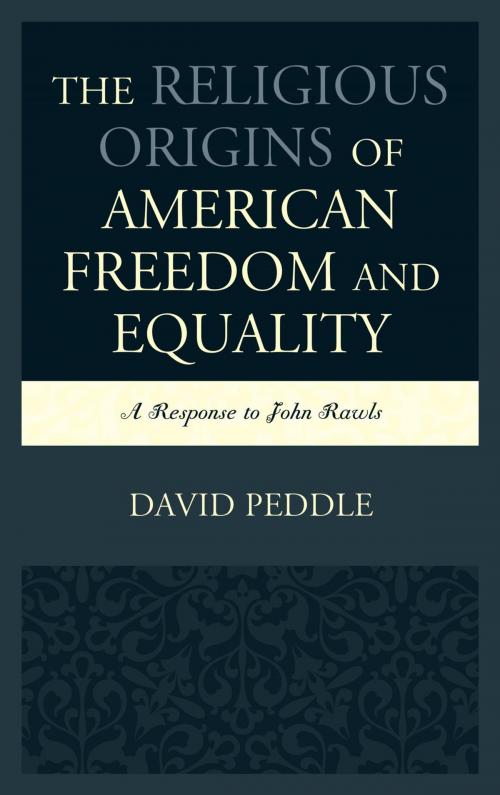The Religious Origins of American Freedom and Equality
A Response to John Rawls
Nonfiction, Social & Cultural Studies, Political Science, Politics, History & Theory, Government| Author: | David Peddle | ISBN: | 9780739189177 |
| Publisher: | Lexington Books | Publication: | May 15, 2014 |
| Imprint: | Lexington Books | Language: | English |
| Author: | David Peddle |
| ISBN: | 9780739189177 |
| Publisher: | Lexington Books |
| Publication: | May 15, 2014 |
| Imprint: | Lexington Books |
| Language: | English |
The metaphor of a “wall of separation” between church and state obscures the substantial connection that exists between the Christian religion and American liberalism. The central thesis of this work challenges the legitimacy of this metaphor as it appears in Supreme Court decisions and in the thought of the philosopher John Rawls. The Religious Origins of American Freedom and Equality provides a provocative interpretation of the nature of Christian and liberal principles, suggesting that the principles of individual freedom and equality were forged even within the conservative elements of Calvinism and Puritanism. Recognition of this substantial intellectual connection has the potential to help reshape our conception of the separation of church and state by tempering the opposition between religious and political concepts and values.
The purpose of The Religious Origins of American Freedom and Equality then, is to contribute to an understanding of public reason that is more open to the contributions of religious perspectives. The work attempts to show how religious doctrines, currently obscured by historical context and hermeneutical dogmatism, have nonetheless played a formative role in the evolution of the freedom and equality that is foundational to contemporary liberalism. Understanding the genesis of the concepts of freedom and equality tempers the conceptual opposition between church and state and allows a clearer more inclusive interpretation of the nature of their separation.
The originality of the work is fourfold: (1) the challenge its central thesis poses to dominant constructions of public reason, freedom, and equality; (2) the interdisciplinary method through which it brings the findings of a variety of disciplines to bear on a central issues in political philosophy; (3) the challenge it brings to the analytic and pragmatic approach of contemporary liberalism through its assertion of the importance of historical context to contemporary ideas; and (4) the degree to which it engages theology in its relation to contemporary questions.
The metaphor of a “wall of separation” between church and state obscures the substantial connection that exists between the Christian religion and American liberalism. The central thesis of this work challenges the legitimacy of this metaphor as it appears in Supreme Court decisions and in the thought of the philosopher John Rawls. The Religious Origins of American Freedom and Equality provides a provocative interpretation of the nature of Christian and liberal principles, suggesting that the principles of individual freedom and equality were forged even within the conservative elements of Calvinism and Puritanism. Recognition of this substantial intellectual connection has the potential to help reshape our conception of the separation of church and state by tempering the opposition between religious and political concepts and values.
The purpose of The Religious Origins of American Freedom and Equality then, is to contribute to an understanding of public reason that is more open to the contributions of religious perspectives. The work attempts to show how religious doctrines, currently obscured by historical context and hermeneutical dogmatism, have nonetheless played a formative role in the evolution of the freedom and equality that is foundational to contemporary liberalism. Understanding the genesis of the concepts of freedom and equality tempers the conceptual opposition between church and state and allows a clearer more inclusive interpretation of the nature of their separation.
The originality of the work is fourfold: (1) the challenge its central thesis poses to dominant constructions of public reason, freedom, and equality; (2) the interdisciplinary method through which it brings the findings of a variety of disciplines to bear on a central issues in political philosophy; (3) the challenge it brings to the analytic and pragmatic approach of contemporary liberalism through its assertion of the importance of historical context to contemporary ideas; and (4) the degree to which it engages theology in its relation to contemporary questions.















